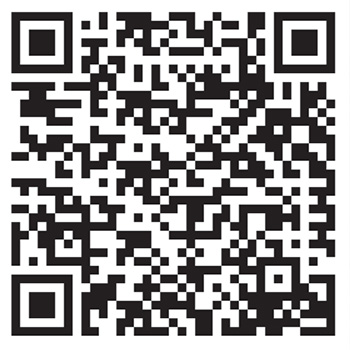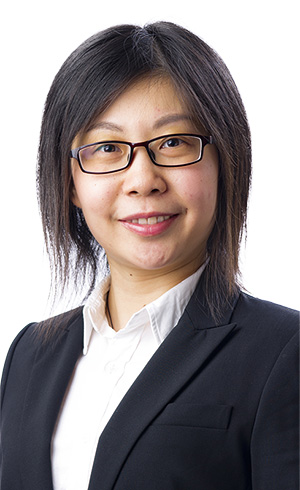The 2018 Nobel laureate in
Economics, Paul Romer, proposes
that technology is the key input
to a firm's production function
and the key source of economic
growth1. His models explain how
innovative technologies in the
early 1990s, such as computer
codes for word processors or the
internet, gave rise to increasing
returns to scale in production and
sustained exponential growth in the
economy. Technology has moved
on a long way since then, and
these days technological platforms
are increasingly shared across
sectors. Firms interact with one
another to inspire innovations, and
technological advancement created
by one firm can rapidly diffuse to
other firms in related technological
fields even when they are not in
the same product market. Such
knowledge "spillovers" have
become increasingly important in the daily operation, growth
and productivity of firms. In this
innovation and technology-based
economy, how can auditors best
leverage their clients' technological
position to make better auditing
decisions and professional
judgments?
The benefits of technology
knowledge spillover
The new-found technological
expertise is transforming the nature
of audit work. By knowing how a
client uses technology to execute
and record business transactions,
auditors are better able to design
audit procedures which can more
effectively and efficiently collect
appropriate evidence. Traditional
substantive audit tests may no
longer be fit-for-purpose in the light
of key technological developments
such as the Internet of Things,
artificial intelligence, and smart contracts used in the financial
reporting and internal control
process. Auditors should be aware
of the benefits and risks resulting
from the implementation of new
technologies in financial reporting
and how they may affect planned
audit procedures.
Here's how technology spillover
might work to the benefit of
auditing companies. American
Airlines Group Inc. (AA) and AT&T
Inc. (AT&T), the world's largest
telecommunications company, are
both audited by the Ernst & Young
Dallas office. Although these two
firms do not belong to the same
industry or share any supply-chain
linkages, their main patents both
cover the same technological field
of "automated reservations system
(Cooperative Patent Classifications
(CPC): G06 and Q10)," which
constitutes the online booking systems for their services/products.
In a break from the traditional
financial reporting process, most
of the audit evidence for AA and
AT&T is now available electronically,
with many tests of controls and
substantive tests performed using
electronic data.
Clients may face many new
business risks relating to their online
reservation systems, for example,
pervasive security risks such as
virus attacks and infrastructure
failures, or transaction integrity
risks such as the need to distinguish
between customer browsing, orders
placed and cancelled. Auditors
need to conduct tests of controls
regarding whether the clients have
implemented sufficient internal
controls to address security and
integrity risks, and to prevent
unauthorised changes to the
accounting system or records. It is
plausible that Ernst & Young may
develop their auditor expertise in
the technology field of "automated
reservations system" through their
auditing of AA and AT&T, which,
in turn, may facilitate their audit work for all other clients who have
adopted the automated reservations
system. Conversely, technology
knowledge spillover from other
clients in technology Class G06 and
Q10 will benefit Ernst & Young's
audits of AA and AT&T.
Innovation and client-specific
production
Another way in which technological
expertise can benefit auditors is
related to innovation and client-specific
production. Deloitte &
Touche Chicago office provides
audit services for both Deere &
Co, an American manufacturer
of agricultural, construction, and
forestry machinery and Abbott
Laboratories, an American medical
devices and health care company.
These two firms do not have
any overlap in the supply-chain
and product market. But both
of their major patents cover the
technological field of "measuring
liquid level (CPC classes: G01F23),"
which is crucial for their operations
as it provides a way to reliably and
accurately measure and monitor
liquid inventories across the whole production process. From the
auditor's point of view, the greater
their experience in the technology
field of "measuring liquid level,"
the better to evaluate the clients'
inventory, which could influence
the whole production process. If
Deloitte & Touche gain expertise in
liquid measuring knowledge from
auditing Deere and Abbott, this
will benefit their audit work on
any other clients whose operations
involve the same technology.
Auditor technological expertise
is a benefit to clients
Technology knowledge transfer
is occurring beyond traditional
industry boundaries. Sharing an
auditor with a product market
competitor is a potential risk, which
may result in negative business-stealing
effects, a.k.a. product-market
rivalry effects, to the leaked
firm. But client firms are less likely
to be concerned about potential
leakage of proprietary information
when they hire the same auditor
as their close technology peers.
Therefore, auditor technology
specialisation developed from clients' technological proximity
constitutes a critical type of auditor
expertise, in distinction to auditor
industry specialisation. One can
therefore expect that auditors will
be able to develop specialisation
from clients with technology affinity
to a greater extent than from those
with product closeness, resulting in
higher audit quality.
Technology affinity and audit
fees
How does technology affinity affect
audit fees? On the one hand,
auditors who provide specialised
services need to invest extra effort
to gain and maintain their expert
knowledge and to better polish
their audit work. Such specialist
auditors therefore require a normal
rate of return on such additional
investments, resulting in higher
audit fees compared to non-specialist
ones. In a similar vein,
if auditors are able to develop a
reputation for better audit quality
arising from their technology
specialisation, they can charge audit
fee premiums for that expertise.
Client firms are also willing to pay an audit fee premium for their
auditors' technology specialisation.
On the other hand, auditors will
charge lower audit fees if client
technology knowledge spillover
provides auditors with economies of
scale, reducing the effort required
to understand, evaluate, and detect
accounting problems.
In our paper2, we exploit the
technological closeness among
clients of the same auditor
to examine whether auditors
develop expertise from their client
technological links beyond product-market
specialisation. At the audit
office level, we find that a firm's
technological proximity to the other
clients of its audit office improves
audit quality and results in an audit
fee discount. Interestingly, although
we simultaneously examine both
clients' technological proximity and
industry-level product similarity in
our main models, we do not find
significant evidence of improved
audit quality or decreased audit fees
associated with product similarity.
At the audit firm level, there is
no strong evidence that either technological proximity or product
similarity among clients of the same
audit firm affects audit quality or
audit fees. Taken together, our
findings suggest that technology
knowledge is client-specific and
cannot be easily transferred beyond
the individual audit office.


